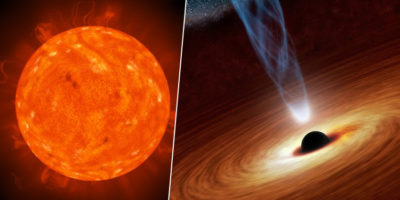Why Does Time Go Faster As We Grow Older?
Remember the time when summer holidays felt really, really long? But the older you got, the faster the days disappeared until months and years went by without you realizing it. So why does time go faster as we grow older?
Several explanations have been put forward to explain this phenomenon. The simplest of these is that it takes longer to encode new experiences than familiar experiences, and when you’re young, all experiences are new, so time seems to go slower.
It could also be because our perception of time is relative to the time we have lived so far. Say for example if you are a five-year-old kid, then the past two years of your life represent 40% of all the life you’ve lived and can recall. But when you are a 50-year-old adult, then the past two years represent only 4% of all your recallable life. So, for a kid, two years might seem to last forever, but for an adult, those two years might not even seem long at all.
Another theory proposed by Professor Adrian Bejan is that our brain’s processing speed decreases as the complexity of its neural network increases as we get older. When you’re young, the electrochemical signals in your brain need to travel shorter distances, which means you get to process more mental images per unit of time. But when you’re older, the signals have to travel longer distances, and so a lesser number of mental images are processed.
Just as a higher number of frames per second gives you slow-motion video on a camera, life seems to go slowly when you’re young, and just as a lower number of frames per second gives you a fast-motion video, life seems to hurry by when you’re older.
It isn’t just age that alters our perception of time. Every single one of us has felt the seconds drag by when we’re bored but things seem to move in slow motion when we’re in life-threatening situations. And, if we’re having fun, time flies by before we know it.
So, what are your experiences of time perception? Let us know in the comments below.
[source: 1,2,3]























